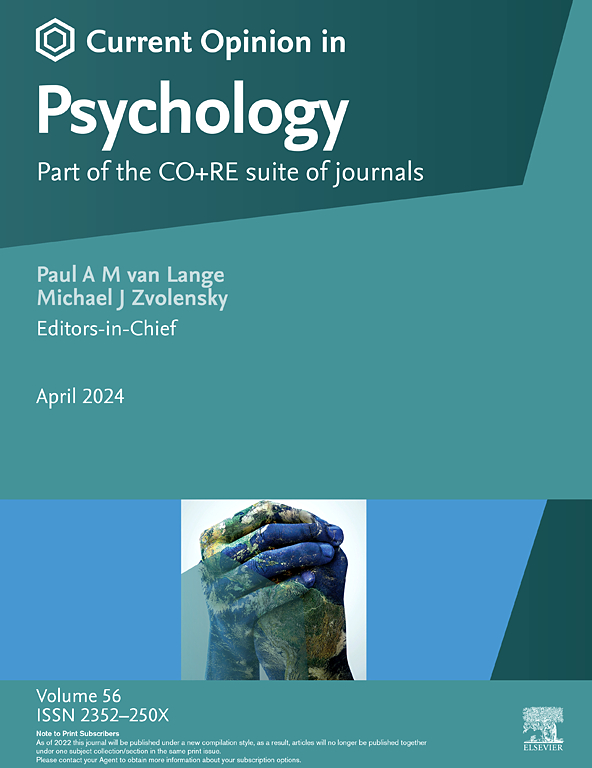态度强度作为任性无知的新预测因子
IF 6.9
2区 心理学
Q1 PSYCHOLOGY, MULTIDISCIPLINARY
引用次数: 0
摘要
故意无知是一种普遍存在的现象,对决策、信仰维护和社会两极分化产生了重大影响。虽然过去的研究已经确定了这种行为背后的各种动机和背景因素,但对形成故意无知可能性的态度特征的关注较少。为了解决这一差距,本文介绍了态度强度作为一个关键的、迄今为止尚未被探索的心理因素,它应该影响个人何时以及为什么从事故意无知。我们认为,强烈的态度,比如那些确定的、易于接受的或被认为与道德相关的态度,特别容易引起故意的无知。利用认知失调理论和动机推理,我们综合了各个领域的研究结果,从政治党派关系到对错误信息的反应和人工智能介导的沟通。本文章由计算机程序翻译,如有差异,请以英文原文为准。
Attitude strength as a novel predictor of willful ignorance
Willful ignorance is a pervasive phenomenon with significant consequences for decision-making, belief maintenance, and social polarization. While past research has identified various motivational and contextual factors underlying this behavior, less attention has been paid to attitude characteristics that shape the likelihood of engaging in willful ignorance. Addressing this gap, this paper introduces attitude strength as a critical and heretofore unexplored psychological factor that should affect when and why individuals engage in willful ignorance. We argue that strong attitudes, such as those held with certainty, are highly accessible, or are perceived as morally relevant, are particularly likely to elicit willful ignorance. Drawing on cognitive dissonance theory and motivated reasoning, we synthesize findings across domains, from political partisanship to responses to misinformation and AI-mediated communication.
求助全文
通过发布文献求助,成功后即可免费获取论文全文。
去求助
来源期刊

Current Opinion in Psychology
PSYCHOLOGY, MULTIDISCIPLINARY-
CiteScore
12.10
自引率
3.40%
发文量
293
审稿时长
53 days
期刊介绍:
Current Opinion in Psychology is part of the Current Opinion and Research (CO+RE) suite of journals and is a companion to the primary research, open access journal, Current Research in Ecological and Social Psychology. CO+RE journals leverage the Current Opinion legacy of editorial excellence, high-impact, and global reach to ensure they are a widely-read resource that is integral to scientists' workflows.
Current Opinion in Psychology is divided into themed sections, some of which may be reviewed on an annual basis if appropriate. The amount of space devoted to each section is related to its importance. The topics covered will include:
* Biological psychology
* Clinical psychology
* Cognitive psychology
* Community psychology
* Comparative psychology
* Developmental psychology
* Educational psychology
* Environmental psychology
* Evolutionary psychology
* Health psychology
* Neuropsychology
* Personality psychology
* Social psychology
 求助内容:
求助内容: 应助结果提醒方式:
应助结果提醒方式:


